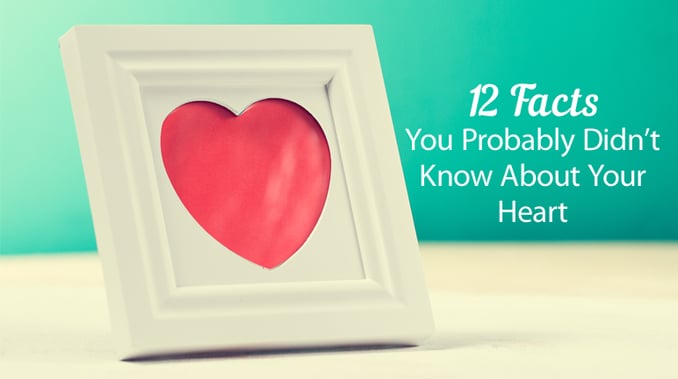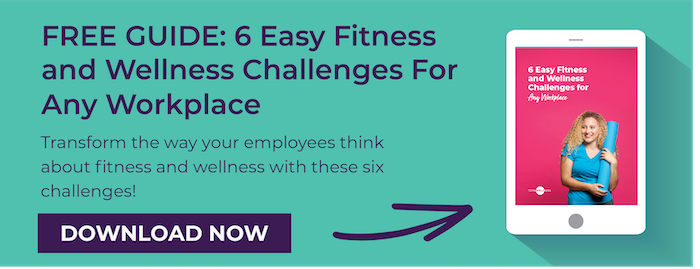
Happy heart month! For such an important muscle, hearts are ignored all too often. Don’t you think your heart deserves some recognition for its loyal, steady beat and for supplying blood to all of your organs? We think so! The month of February is a great time to put your focus back on your heart and help yourself set goals for a heart healthy year.
Below are a few fun and interesting facts about your heart to help you appreciate just how important your heart–and heart health–really is:
Your heart has its own electrical impulse. It can continue to beat when separated from your body as long as it has oxygen!
Your (adult) heart beats about 100,000 times every day. In fact, the heart has the ability to beat over 3 billion times in a person’s life.
Your heart is about the size of your fist. Heart size depends on the size of the person as well as the condition of the heart.
Cardiovascular disease is your greatest health threat. Especially for women. Thankfully, it is largely preventable by controlling certain risk factors.
Heart attack symptoms can be different in men and women. While both men and women can share the most common signs of a heart attack, some symptoms differ. Men tend to report more chest pain symptoms, while women have been shown to report unusual fatigue, sleep disturbances, dizziness, and anxiety. Not all heart attacks start with the typical warning signs, so it’s important to be aware of common symptoms and call a doctor right away if you feel like something isn’t right.
Exercise and activity level is one of the greatest potential risk factors for heart disease. Physical inactivity leads to high cholesterol and high blood pressure levels, among other things. Regular exercise, about 150 minutes a week, along with a heart healthy diet is one of the best ways to prevent heart disease.
Your heart is your hardest working muscle! It does the most physical work of any muscle during a lifetime. Your heart is constantly pumping energy throughout your body. Even though your heart could weaken from certain conditions, it will never fatigue.
Your heart is located in the center of your chest. From reciting the Pledge of Allegiance as a child, you might still think your heart is located on the left side of your chest. Your heart is actually located in the dead center of your chest with the largest part of your heart on the left side. Your left lung is smaller than your right lung to make room for your heart!
A female’s heart beats faster than a male’s heart. About eight beats a minute faster! This is because a female heart is smaller than a male heart. The smaller the heart, the more beats are needed to pump the same amount of blood.
Your heart doesn’t actually stop beating when you sneeze. You’ve probably heard that statement a few times throughout your life as an explanation for the term “bless you” after you sneeze, but experts say that is just a common myth. The changing pressure in your chest after you sneeze changes your blood flow, which could change the rhythm of your heartbeat, but it doesn’t momentarily stop it.
About 75 trillion cells receive blood from your heart. In fact, it’s just your corneas that don’t receive blood from your heart.
Your heart pumps about 2,000 gallons of blood every day. Over your lifetime, your heart pumps about 1 – 1.5 million barrels of blood. For a visual, that’s enough blood to fill up three supertankers!
Take these fun facts to heart, and give your heart the attention it deserves! After all, your heart is arguably the most important muscle in your body to keep healthy.
Ready to encourage employees to work on their heart fitness? Consider downloading our FREE step-by-step 6 Easy Fitness and Wellness Challenges for Any Workplace guide!
Image designed by Valeria_aksakova - Freepik.com



